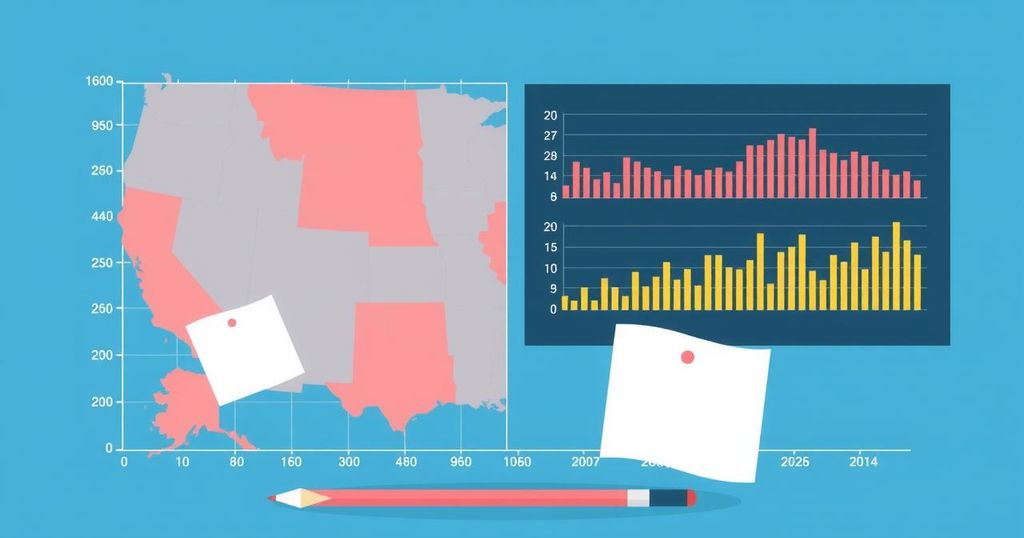The year 2024 marked a historic electoral milestone with nearly 3 billion voters in 73 countries, revealing both the potential and challenges facing modern democracies. While significant political shifts occurred as voters removed incumbents, issues of misinformation, institutional distrust, and representation emerged. Notable strides in women’s political engagement occurred alongside persistent underrepresentation of youth, signifying a complex landscape for democratic governance moving forward.
The year 2024 is recognized as a watershed moment in democratic engagement, witnessing nearly 3 billion individuals casting their votes in 73 nations, establishing it as the most significant election year recorded. These elections, encompassing both national and local levels, emerged as crucial determinants shaping political, social, and economic outcomes worldwide. Notably, for many participants, this marked their initial encounter with the democratic process, demonstrating the inclusive capabilities of such systems.
Concurrently, democracy grappled with critical challenges, particularly a burgeoning sense of disenchantment amongst citizens; a staggering two-thirds perceived their influences as largely disregarded within political frameworks. Distrust in governmental institutions continued to escalate, attributed to escalating misinformation, intensifying political divisions, the contraction of civic spaces, and rampant misuse of state resources by incumbents seeking to preserve their authoritative positions. The role of social media and artificial intelligence only magnified these hurdles, highlighting concerns surrounding electoral integrity through means such as deepfakes and microtargeting.
Dubbed the “super election year,” 2024 evidenced transformative political shifts, as voters consistently unseated incumbents deemed disconnected from pressing societal issues. In Europe, far-right movements gained momentum in nations such as France and Germany, exploiting economic discontent and cultural rifts. However, centrist coalitions generally succeeded in thwarting their ascent to power. Irregularities such as vote-buying in Serbia and oppressive voter ID laws in the United Kingdom further compromised public confidence in the electoral process.
Despite facing significant adversity, encouraging signs of democratic resilience emerged. In Africa, a new cadre of youthful leaders rose to the forefront in Chad, Mozambique, and Senegal, epitomizing a commitment to more inclusive governance. Additionally, instances of cross-ideological voter collaboration showcased the potential for collective efforts in upholding democratic values. Nevertheless, systemic barriers to representation persisted, with women’s legislative participation declining marginally and younger leaders remaining underrepresented across many regions.
The year underscored the paradoxical nature of progress and fragility within contemporary democracies. While challenges such as misinformation, polarization, and economic distress exert considerable strain on democratic systems, opportunities for reform, collaboration, and the reinforcement of inclusive governance mechanisms present pathways towards addressing evolving public needs. The 2024 elections reflected both the promise of democratic evolution and the stark realities of its vulnerabilities.
The background of the 2024 elections illustrates a time of both significant democratic engagement and troubling challenges within governance structures. This year has seen unprecedented participation, with billions of voters making their voices heard across numerous countries, marking a historical benchmark in global democracy. However, the accompanying issues of public disenchantment, institutional distrust, and the influence of digital technology on the electoral landscape reveal the complexities faced by democracies today. The elections also serve as a barometer for societal sentiments and the effectiveness of democratic practices worldwide, showcasing crucial shifts in political power and representations.
In conclusion, the “super election year” of 2024 captivates both the resilience and fragility of democratic systems across the globe. With billions exercising their right to vote, the potential for meaningful political change remains evident, despite the underlying challenges posed by misinformation and institutional erosion. This year’s elections highlight the necessity for reform and enhanced participation, paving the way for advancing democratic representation and accountability in an increasingly complex political landscape.
Original Source: anfrel.org





